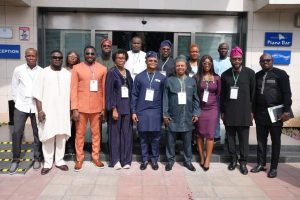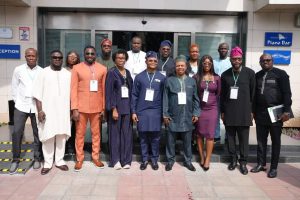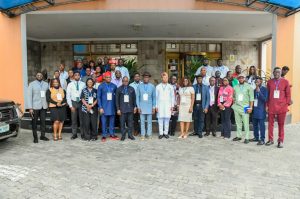The Nigerian Content Development and Monitoring Board (NCDMB) and the Senate Committee on Local Content on Sunday began a 3-day retreat at Abuja, aimed at forging closer collaboration between the two entities, to achieve improved implementation of the Nigerian Oil and Gas Industry Content Development (NOGICD) Act.
The retreat’s theme is creating synergy for sustainable local content development and was attended by members of the committee and some senior management of the NCDMB.
Speaking at the opening ceremony on Monday, the Executive Secretary NCDMB, Engr. Felix Omatsola Ogbe underscored the importance of collaboration with relevant stakeholders in managing and growing Nigerian Content in the oil and gas industry. He stated that the retreat is a key platform for actualising the needed collaboration, describing the National Assembly as one of the most important stakeholders to collaborate with.
He reiterated that the Board is focused on fulfilling the mandate set out by the NOGICD Act, which is basically to build the capacity of Nigerian companies and people to participate in the oil and gas industry and to monitor the compliance of oil and gas companies. He stressed that the mandate has not changed with the change of leadership in the Board.
Speaking further, Ogbe maintained that his major objective in the current role is how to sustain the growth of Nigerian Content in the oil and gas industry.
Commenting on the performance of the Board, the Executive Secretary indicated that NCDMB operates as a business enabler and supports the value chain efficiency and project delivery. He added that “consistent with the recent Presidential Directives on Local Content and in line with our Service Level Agreement (SLA) with the oil and gas industry, we are simplifying our processes and accelerating our approval timeline to enable business delivery.” He also announced that the Board was coming up with a programme where it would upgrade the quality of some primary and secondary schools in the hinterlands, as a strategy to develop competent manpower for the oil and gas industry in years to come.
In her remarks, the Chairman of the Senate Committee on Local Content, Senator Natasha Akpoti-Uduaghan lauded the successes that have been recorded with the implementation of the NOGICD Act, especially in the development of critical assets and the emergence of Nigerians with the requisite skills to deliver complex projects and lead operations of the oil and gas industry.
She however identified huge gaps for improvements, noting that the retreat provided the opportunity to create the needed interface with key stakeholders. She emphasized that close collaborations lead to higher productivity and impact, which would benefit members of the public.
She also canvassed that trainees of the Board’s on-the-job training and direct training programmes should be engaged by the oil and gas industry, otherwise, the resources committed to their training would have been wasted.
The retreat featured presentations from key directorates of the Board, including the Director, Monitoring and Evaluation, Mr. Abdulmalik Halilu, who discussed how monitoring activities are carried out by the Board, to ensure that operating and service companies comply with the provisions of the NOGICD Act. He explained that the Nigerian Content Compliance Certificate (NCCC) which is the outcome of the Board’s Projects Certification and Authorization process is converted into the monitoring template and used to monitor the operations of oil and gas firms.
Also speaking, the Director, Projects Certification and Authorization Division (PCAD), Engr. Abayomi Bamidele suggested that players of the Nigerian oil and gas industry must ensure that at least one final investment decision (FID) is taken every year, to keep oil and gas service facilities, investments and employees engaged.
Corporate Communications
July 23, 2024
Discover more from Nigerian Content Development & Monitoring Board
Subscribe to get the latest posts sent to your email.











